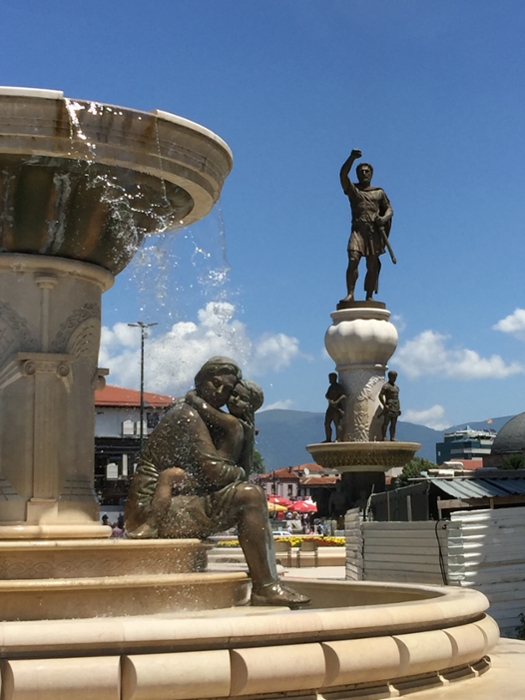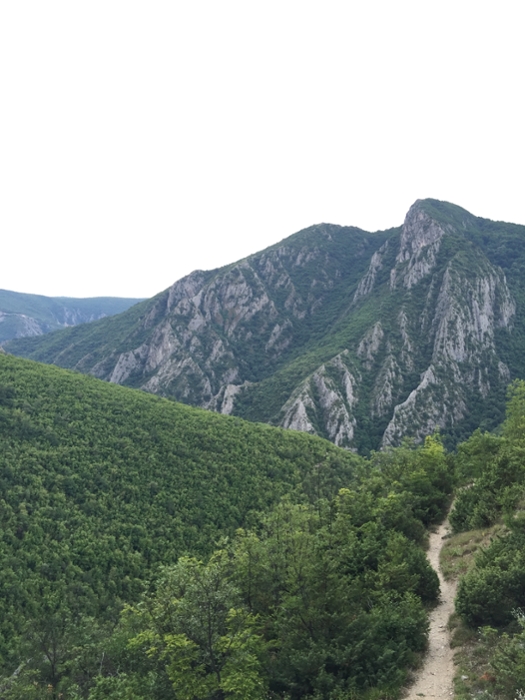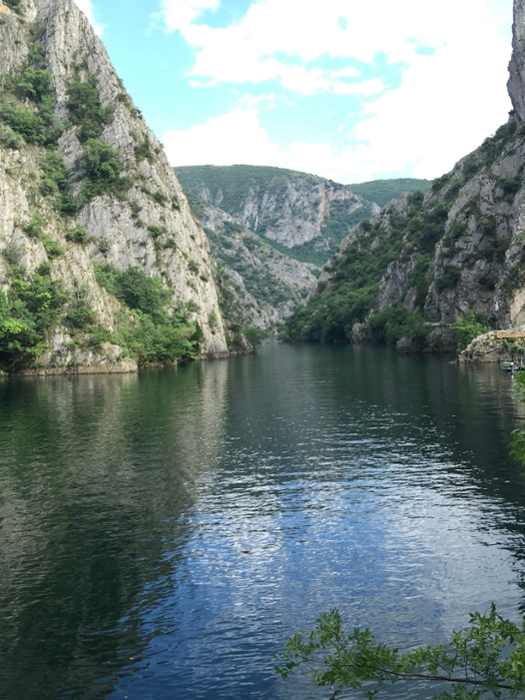Skopje
Friday the tenth was the director's last day at D4D. He recently received word that the Japanese government had officially accepted his appointment as ambassador, so he will be leaving for Japan shortly. With his departure imminent, the director assigned me more work to finish before he left. I spent most of the week going over D4D's official manuals and other documents. He also told me to make extensive changes to a research manual he has been working on for a few years now. This task required me to rewrite large portions of the manual. The director told me that I would be credited as a coauthor of the piece. This was a nice surprise, as the last thing published under my name was a terrible poem I wrote in fifth grade that somehow wound up in a book of childrens' writing. I tried to write a poem in the style of J.R.R. Tolkien. It was truly awful.
Monday night D4D hosted a party in the director's honor at his favorite local cafe/bar. I arrived at 6, hoping to be home by 9 at the latest. The night ended up lasting much longer than I anticipated. After the head of D4D's board spoke, and the director spoke, and the incoming acting director spoke, the festivities moved to a restaurant down the street. Several pizzas were ordered, and even more raki toasts were given in the honor of just about everyone in attendance. Raki is the local liquor of choice in the Balkans. It was once described to me as similar to brandy. Not all in attendance partook in the toasts. It is currently Ramadan, an important holiday for the majority Muslim population of Kosovo. Two of my co-workers are currently fasting. Two more told me that they usually observe Ramadan, but not when it falls in summer. Not being able to even drink water during the hot summer days in the Balkans must be difficult. My co-worker told me that he wakes up to eat breakfast at 2:30 each morning, and then may not eat again until 8:20 in the evening. Additionally, those Muslims who observe Ramadan may not drink alcohol while fasting. I eventually got up the courage to leave at 11, but I was one of the first to do so. I will be continuing to work with the director on the research manual and a few research papers via email.
This weekend I visited Skopje, the capital of Macedonia. On this trip I traveled through border patrol by bus for the first time in my life. When I boarded the bus in Pristina (or rather, the extended minivan) I wrote my name and passport number on a sheet of paper on the driver's clipboard. At the border, both the Kosovar and Macedonian officials took turns collecting our passports, leaving the bus, and returning a few minutes later having stamped each one. Security was quite lax. Passengers were allowed to exit the bus to use the restroom without any escort or supervision.
Before my trip, a D4D staff member described Skopje as "the city Trump would build if he were Greek." My co-worker was not wrong. The center of Skopje is filled with brand new statues and monuments. The government buildings are giant, built to resemble the traditional pillared structures of Greece. As nearly everything in the center was built within the last two years, the entire central plaza is blindingly white and clean. I felt like I was walking through Las Vegas. The most interesting part of the city center was the paint splattered on some of the buildings and monuments. The paint was the aftermath of a political protest that occurred Friday evening, a couple of hours before I arrived in Skopje. Apparently, throwing colorful paint on buildings and roads is common practice for protestors in Macedonia. I am not sure how efficient a method of protest the paint is, but it was at least nice to look at the next morning.
I visited two museums in Skopje. The Museum of Macedonia is located a few blocks from the city center, in an old boxy building with marble floors and dark wood panelling on the walls. I was the museum's only patron that morning; I had to turn the lights on in each room I entered. The main thing I learned from my visit was that the United States thwarted Macedonia's attempt to gain independence from Greece after WWII when President Truman gave his support for the Greek monarchy. Yet another piece of U.S. foreign policy history to be proud of. I also visited Skopje's archaelogical museum. I had initially decided against entering this museum, as it was one of the garish faux-Greek structures I mentioned earlier, but it was the only museum open Sunday morning before the bus left for Pristina. The museum actually had quite an impressive collection. My favorite piece was a fully intact soldier's helmet from the time of Alexander the Great.
Tired from squinting my way through the city, I went back to the hostel to regroup. I learned that a short distance outside the city lay Matka Canyon, an area for hiking. I took a forty minute bus ride out of the city and then walked about twenty minutes to reach the canyon. It ended up being the best decision I made in Skopje. The scenery and landscape were strikingly beautiful. There were tall hills on either side of the canyon, and a river running along the bottom. At one end, a dam formed a lake where visitors might kayak. I spent the rest of the afternoon hiking through the hills and taking pictures.
